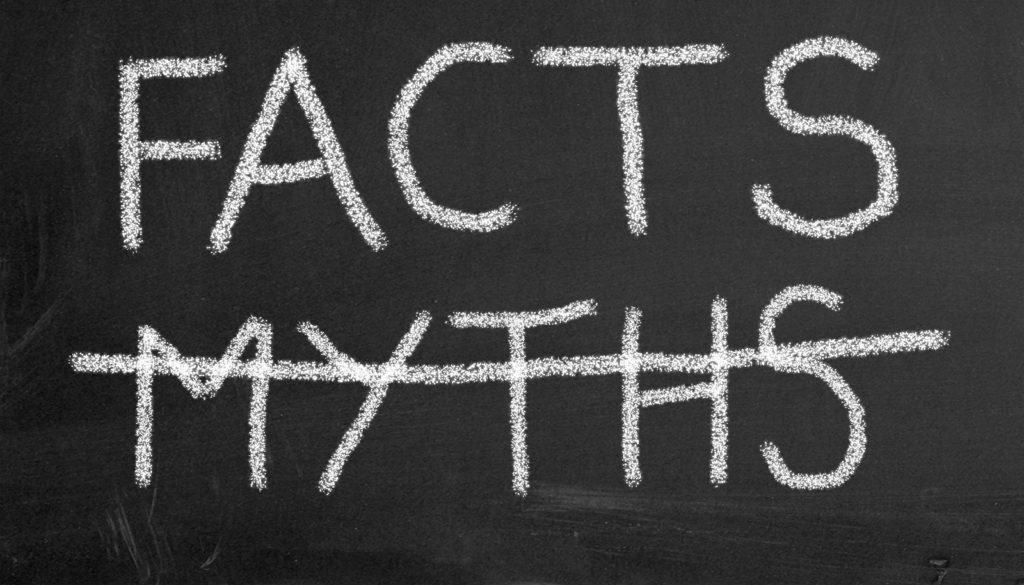Many IP practitioners are misinformed about the function of the USPTO’s Office of Enrollment and Discipline (OED). Here are the top 5 myths about OED ethics investigations and attorney discipline at the USPTO.
Myth #1 – The OED Only Cares About Practice Before the USPTO
There is a perception that the USPTO only cares about enforcing its ethics rules in the context of practicing before the USPTO. This is false. The Office of Enrollment and Discipline can and does investigate and prosecute practitioners for conduct having absolutely nothing to do with practicing before the Office. The OED, for example, investigates and prosecutes practitioners convicted of crimes having nothing to do with the practice of law. Personal misconduct matters. As long as it reflects upon a practitioner’s character, the OED will generally take interest regardless of where the misconduct occurred.
Myth #2 – If I Am Not A Registered Patent Practitioner The OED Does Not Care About My Conduct
This too is false. While registered patent attorneys and patent agents are within the scope of the USPTO’s disciplinary jurisdiction, the breadth of the Office’s ethics rules reaches more than just patent practitioners. Trademark attorneys, for example, are subject to the USPTO’s disciplinary rules. Attorneys who are not even actively engaged in practice before the Office but who are named on a Power of Attorney, for example, may be found to be within the disciplinary jurisdiction of the USPTO. In addition, the OED has the power to investigate non-patent attorneys who are admitted to practice pro hac vice in a matter before the Office.
Myth #3 – The USPTO Prefers to Let the State Bars Investigate Ethics Violations
Every state has its own disciplinary system. The USPTO’s OED is like a 51st state, and it will not defer to an investigation being conducted by a state bar. On the contrary, the OED conducts its own ethics investigations. The reason in part is because if the USPTO wants to discipline a practitioner, it must move quickly – the USPTO has only one year to file a disciplinary complaint after the OED Director learns about a practitioner’s possible ethical misconduct. That one-year statute of limitations–the fastest of any bar in the United States–means the USPTO will not wait for a state bar to conduct its ethics investigation but will dedicate its own resources and forge ahead with its own ethics inquiry.
Myth #4 – Discipline by the USPTO Will Not Impact State or Federal Bar Licenses
Dead wrong. Each state and federal jurisdiction has its own system of so called “reciprocal discipline.” The idea is that if one bar issues a disciplinary decision against an attorney, other jurisdictions will give full faith and credit to the first bar’s disciplinary decision. The same holds true when that first bar is the USPTO. When the USPTO disciplines an IP practitioner, that practitioner is required to report the USPTO’s discipline to each of their state and federal bars. A suspension from the USPTO will often result in a similar sanction being imposed by the disciplined practioner’s other bars. For this reason, simply saying that the practitioner will resign from the USPTO if they are the subject of an ethics investigation will not have the desired result. On the contrary, a resignation from the USPTO while a practitioner is under investigation for an ethics violation is treated as a disbarment. Moreover, the practitioner’s other state and federal bars will assume, for purposes of their own disciplinary rules, that the practitioner was disbarred from the USPTO. Those other bars could very well impose the identical sanction of disbarment. Thus, practitioners who are under a USPTO ethics investigation must consider the ramifications that discipline in the USPTO will have on their right to practice law in any jurisdiction.
Myth #5 – The OED Will Only Conduct an Ethics Investigation When Someone Files A Complaint
Completely untrue. While many OED ethics investigations begin as the result of a formal “grievance,” the OED conducts investigations whenever it receives information from any source that a practitioner may have violated one or more of the USPTO’s ethics rules. “Any source” literally means just that. “Any source” includes, for example, news articles, USPTO employee notices, blogs, court decisions, and even anonymous tips.
So be careful. The USPTO cares more about IP ethics than you may think. And the OED has no problem with filing a Patent or Trademark Practitioner Ethics Complaint if it determines that one of the USPTO’s ethics rules has been violated.

I got an issue with an Attorney that came back on a trademark case after she was discipline, she started back, but had not been reinstated by OED, now she is off all her cases and can not come back until permission is asked and granted, what happens to all the motions and papers she filed in my case, are they valid or not?